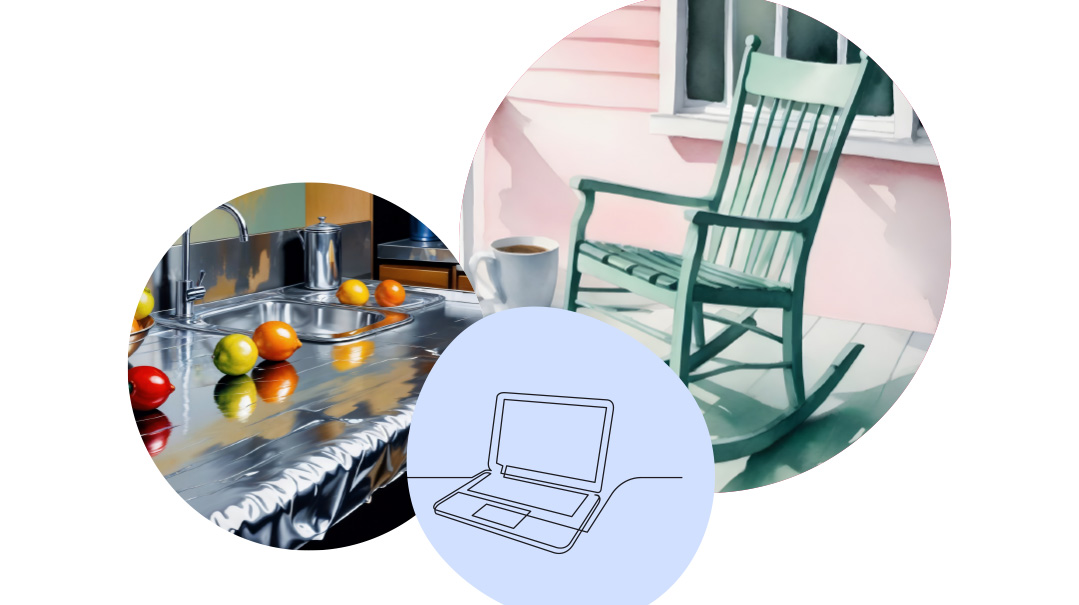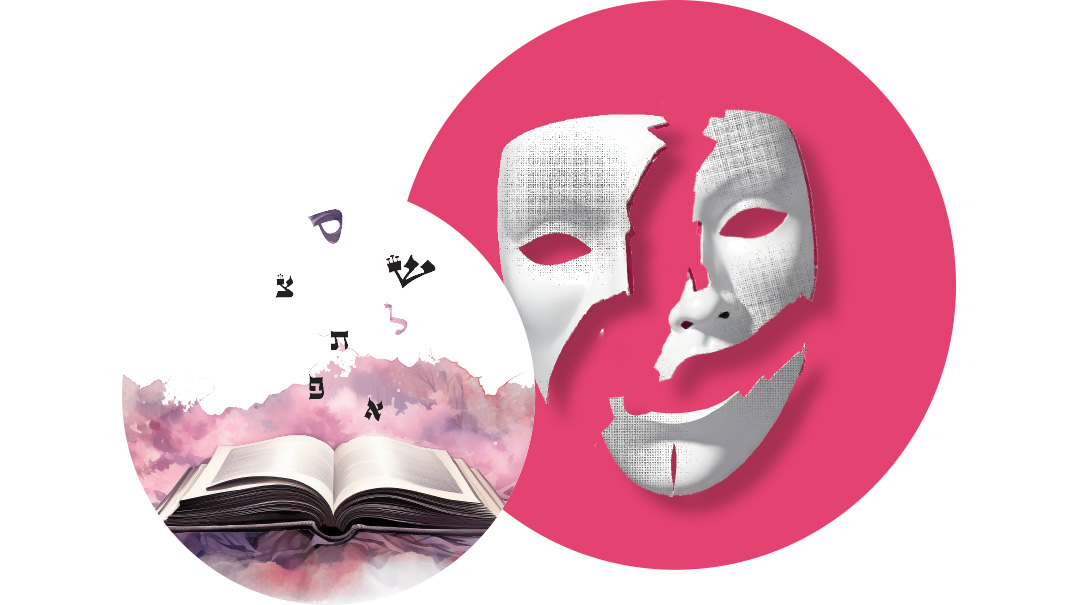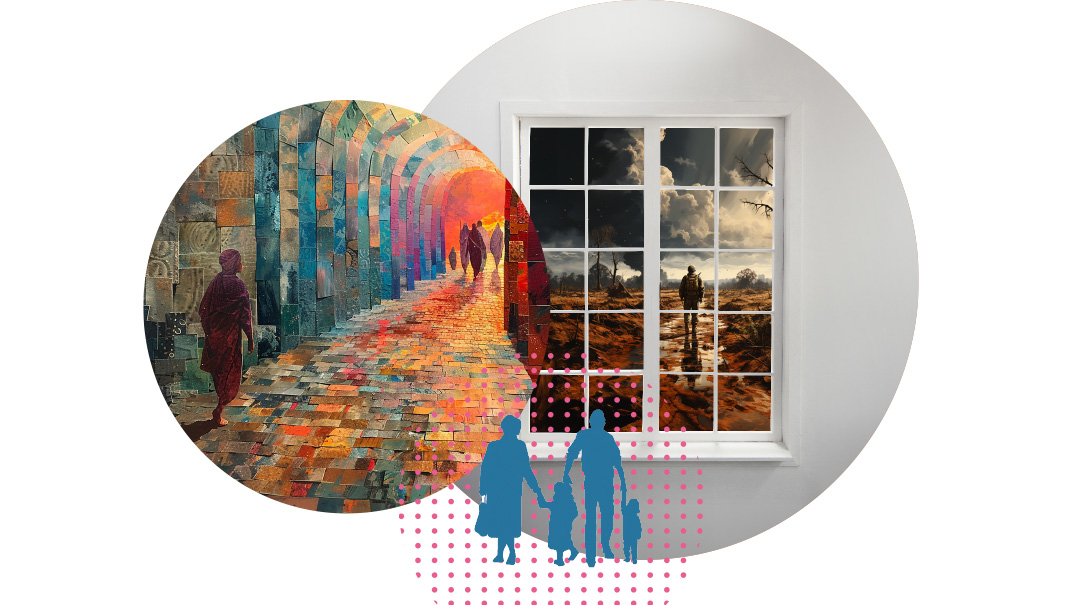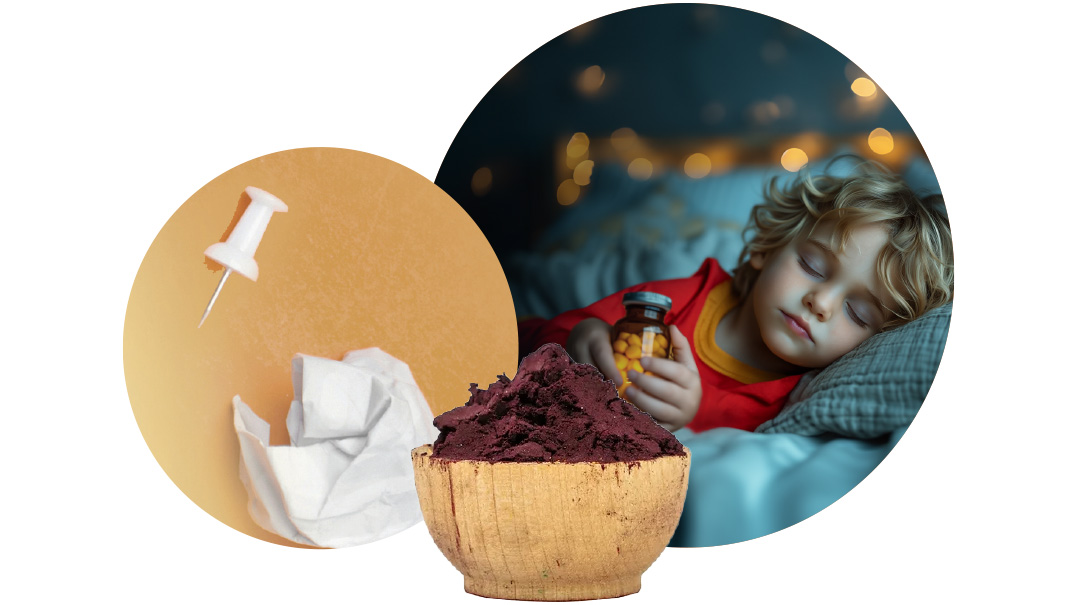Family First Inbox Letters: Issue 731

"I was surprised to see a letter decrying the Medical Mystery column as sensational and harmful"
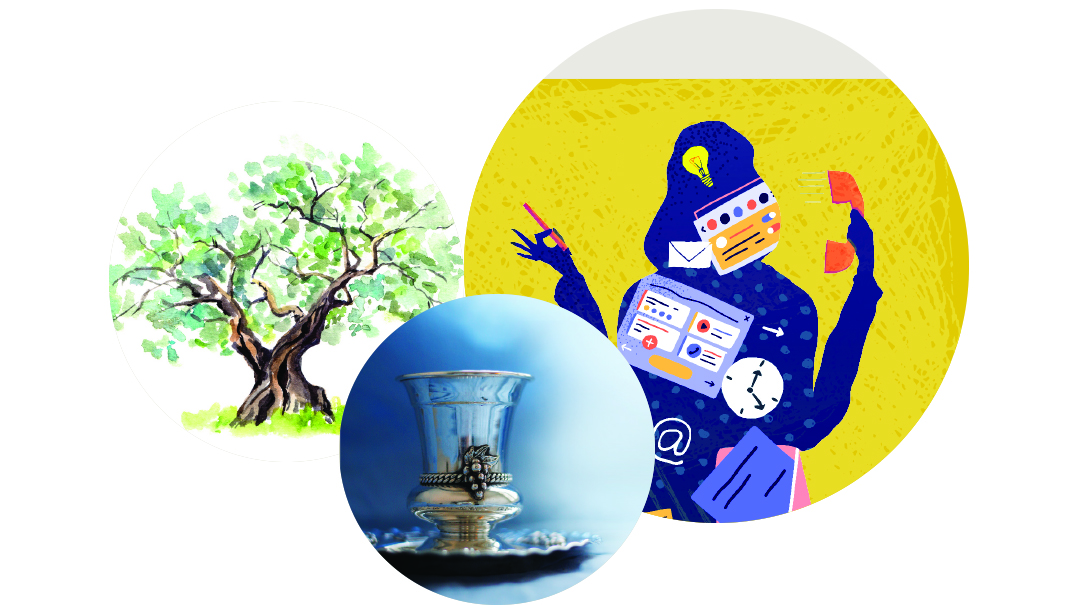
Lifechanging Soundtrack [Inbox / Issue 730]
I was glad to see the letter in response to the “Sounds of My Childhood” feature, written by a woman who described learning to change the soundtrack to her difficult childhood. Unfortunately, her words really resonated with me.
I too come from a childhood in which the soundtrack began with angry whispers and moved into yells that increased their volume by the minute, culminating in a loud slam of the front door to my home. But it didn’t stop there — the crying coming from the kitchen that followed afterward was painful to listen to. Although I am saddened to see that someone else lived with this reality too, it did bring me comfort to see that I’m not the only one.
When I was a child still living in that nightmare, I often used the gift of music to cover up the painful sounds. I always made sure that the music I was using was bringing me closer to Hashem and not further. Sounds of beautiful Jewish lyrics would play in my headphones, and I believe the music brought me closer to Hashem and deepened my relationship with Him in a way that still impacts me today. Listening to pesukim and timeless Jewish teachings in musical form while difficult family conflicts were just a few feet away taught me that it is possible to connect to Hashem even during frightening times.
Although my childhood memories are not full of warm and fuzzy soundtracks like the ones described in the article, the soundtracks of music that I listened to that covered up the painful sounds helped me build such a strong connection with Hashem. Baruch Hashem, this connection has helped me accept the reality of the sounds of my childhood. I truly believe that they were for my good, even if I cannot understand why.
Name withheld
No Guilt, Just Growth [Step It Up / Issue 730]
Regarding Mindel Kassorla’s reflection on guilt and the yetzer hara, I often think of “Haser satan milfaneinu u’mei’achoreinu.” The yetzer hara tries to trip us up before we do a mitzvah (milfaneinu) by telling us we can’t do it, and then to trip us up after we successfully complete the mitzvah (mei’achoreinu) by making us preen on how great we are that we accomplished the mitzvah. Rabbi Sack’s words reverberate with me: “We are fallible: Therefore learn to grow from each mistake.” No guilt. Just growth. No room for the satan here!
Debbie Sreter, Jerusalem
Stories of Hope [Inbox / Issue 729]
I was surprised to see a letter decrying the Medical Mystery column as sensational and harmful.
It’s not “one out of 850,000” who have recurrent UTIs, to give just one example of a medical mystery and a condition I am intimately familiar with. I am a mother of a child who is entering her fourth year of recurrent UTIs. I see other children at the urologist, nephrologist, and various hospitals and clinics. Pediatric urological conditions requiring more than primary care are not uncommon.
What was shocking in the Medical Mystery was reading about doctors who ignored terrible symptoms because of preconceived notions about the disease patterns. People should not suffer grievous pain and injury because a doctor didn’t get to the bottom of something.
If a doctor cannot offer a solution to a problem, why should someone continue to suffer? Specialists are there for when primary care is not enough. And specialists are not infallible either. I was saddened to read about the child who developed kidney scars. This is a situation we were so anxious to avoid with my daughter’s infections.
In fact, it is our pediatrician who sends us for advanced testing and refers us to amazing experts in the field because the regular protocol is not working. He is the one who coordinates all the recommendations. He wants my daughter to get better and he puzzles with us about the underlying issue. He doesn’t just look at the culture, prescribe the appropriate antibiotic, and call it a day. He is concerned about the permanence or recurrence of the infection, and he wants to get to the bottom of it.
I see no reason to fear any harm from the stories of people who have “a fairly common physical symptom that does not seem to go away,” as the letter writer fears. No matter how common, if a symptom does not go away, people will continue to search for the reason. “Woman Has Post-Nasal Drip and Recovers with Rest and Fluids,” is indeed not newsworthy. But the medical mysteries are the stories where the regular diagnosis and treatment protocols do not work and where symptoms, common or uncommon, do not go away.
I honestly don’t see why this column would be a problem for someone with anxiety. This is not Dr. Google, where, the joke goes, “You have a headache? It’s going to be your last one.”
These are stories of people whose symptoms confounded doctors and whose recovery wasn’t straightforward. Some were eventually even diagnosed with milder conditions and could have been treated many times over instead of suffering. These are stories of hope. I hope I can tell my daughter’s story very soon. She’s still suffering. Advocating for the right shaliach and the right treatment is not sensational or harmful. It’s educational and hopeful.
N.F., Yerushalayim
Women, Don’t Ignore Your Pain [Inbox / Issue 729]
I read with interest the inbox exchange between Rachael Lavon and the therapist who was concerned that the Medical Mystery series was harmful. I’d like to add a point that Rachael did not mention, but is critical for every woman to understand.
Most hospital protocols entail sending every pregnant woman to obstetrics upon admission. While this is done out of an abundance of caution for the unborn baby, too often once the baby is deemed safe the mother is discharged without further checking, regardless of what prompted her to come in the first place.
Unfortunately, this practice has led to countless complications and numerous deaths. Thankfully, many hospitals in the US have recently begun to revisit this approach.
Personally, I experienced this firsthand when I was admitted to the hospital mid-pregnancy with severe abdominal pain on one side, extreme vomiting (think pure bile), and chills. As soon as the baby was monitored and deemed not in distress, and it was confirmed that I was not in labor, I was given a discharge letter to sign. When I pressed for answers I was told it was a muscle spasm and given pain-management meds. When I continued to push, my resistance was chalked up to not wanting to return home on Shabbos, and I was directed to the nearest hospitality room.
As it turns out, gallstones were blocking my bile ducts and my liver was beginning to show signs of infection, necessitating delicate and risky emergency surgery that very week. We discovered this only when following up on our own the next day, with a private family doctor and abdominal ultrasound.
Ladies — especially pregnant ones — please! If you are in pain, do not rest until your pain is addressed. Respect what your body is telling you and don’t be afraid to push as if your life depends on it. Because it just might.
May we all experience only good health!
S.G.
His Master Plan [Editor’s Letter / Issue 728]
Thank you to Bassi Gruen for pointing out the most important point in the article on job hunting. First, last, and always, we need to remember that Hashem is running the show and has a master plan better than any we could imagine.
I truly identified with Mrs. Gruen’s story, as I had a very similar experience in the past year. Having lost an administrative position due to coronavirus cutbacks, I took a less-satisfying office job on a temporary basis. I stuck it out for two months, and when I left out of desperation, I was in the midst of job hunting and very concerned because I had nothing else on the horizon to support my family. I told myself over and over again that Hashem has many ways of sending me a parnassah. I made a list of all the qualities I was seeking for my dream job, and I didn’t hold back on a single thing. Then I davened and davened, reminding myself that Hashem can do anything.
At the start of the next week, all of a sudden, the clients from my freelance business, which had been dormant during COVID, were suddenly contacting me. I got requests for a few other private tutoring and writing jobs which kept us going through that month. It’s now a few months later, and bli ayin hara, my monthly income is the same as it was when I had my administrative role before corona, and I love what I’m doing every day. I do not know how long it will last or where things will take me, but I see Hashem guiding the way.
It’s a hard journey that can be filled with anxiety and setbacks, but bitachon can completely change the experience. Hatzlachah rabbah to all those seeking satisfaction and success in their careers.
Anonymous
Kindness in Blossom [Fruits of Kindness / Issue 726]
After you printed my “Fruits of Kindness” piece about the anonymous “Mrs. Cohen” who prepared packages for Gateshead’s students from overseas, my daughter-in-law called me. Her neighbor had called her to tell her that Mrs. Kohn is her mother-in-law. Shortly afterward, Mrs. Kohn — bichvodah u’v’atzmah! — called to introduce herself. She was so gracious and sweet. We spoke as if we were old friends, and were able to find some common connections. She also told me to let her know if my daughter or granddaughter needed anything — she would prepare a care package to send them. Wow, what a chesed! Mi k’amcha Yisrael.
Thanks for helping me show my hakaras hatov to such a special person and for connecting me with her through your well-read magazine.
Simy Neiman
Take the Melavah Malkah Challenge [What’s Cooking / Issue 726]
Family First’s recent What’s Cooking column, “Stars in the Sky, Appetites High” was full of fabulous delicious Melavah Malkah menu ideas. I wanted to share the Melavah Malkah Challenge to further enhance your readers’ Melavah Malkah.
The Melavah Malkah Challenge is a personal challenge that people take to wash for Melavah Malkah, be it weekly, monthly, or even just once. Partaking in Melavah Malkah is a way to honor and properly escort the departing Shabbos Queen, nourish the luz bone, and usher in brachos of health, prosperity, and spiritual growth into one’s week. People who have taken the Challenge comment how it elevates their family’s Motazei Shabbos and upcoming week. With the long Motzaei Shabbos nights in the winter, it’s the perfect time for people to take the Challenge to wash for Melavah Malkah.
The Melavah Malkah Challenge shares material on Instagram, Whatsapp, and email (melavamalkachallenge@gmail.com), creating a community for sharing information, inspiration, “recipes,” as well as the What Are You Washing On episodes featuring a different “guest” each week. (Family Table’s Chaia Frishman was a recent guest.)
We hope this raises awareness about the beautiful and often overlooked mitzvah of Melavah Malkah.
Sara Gochberg@melavamalkachallenge
My Shabbos Treat [Parshah]
Sometimes we take the best people for granted, and I somehow feel that Mrs. Peritzman is one such columnist. I wanted to take a few minutes to let you know how much I enjoy her writing.
Week in, week out, I look forward to savoring her delightful “Shabbos treats.” She has the uncanny ability to take beautiful parshah thoughts and weave them elegantly into her myriad daily life experiences. With humor, wisdom, and her gifted pen, she knows how to drive a point home and teach and uplift her readers at the same time. Kol hakavod!
Hope we merit to learn from this special lady for many years to come.
Raizy Brief. Los Angeles
(Originally featured in Family First, Issue 731)
Oops! We could not locate your form.

